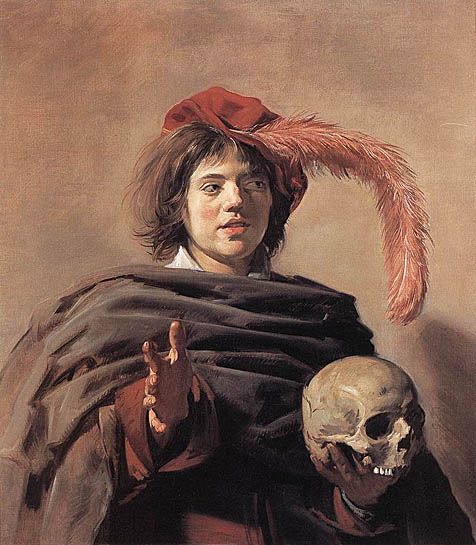Our Amazing Youth: Comparing the Treatment of Teenage Olympic Athletes to Early College Students
Written by: Liesel Lutz
For those who you who do not know, I began college when I was fifteen through Mary Baldwin University’s Program for the Exceptionally Gifted (PEG). PEG takes girls ages 13-18, gives them a place to live, and then the girls are fully enrolled in university, earning their Bachelors, and sometimes even Masters. The girls and I are familiar with how unusual our decision is. We are very used to comments like “You’re geniuses!”, “What about prom?/How will you date?”, and “Kids shouldn’t be going to college”. We face these comments on a nearly daily basis. While most of the campus at least tries to understand why we chose this decision (and why we love it) there’s still a fair share of people who would rather offer criticism. Once again, this is something we all experience. None of us are the type to shout from the rooftops that we go to college early, but it often comes up in conversation when people ask where you go to school. I know quite a few girls lie and say they are homeschooled just to try and avoid the onslaught of comments and questions. Now, don’t me wrong. I know our decision is unusual and some people ask a lot of questions out of genuine interest, but a lot of people do not. Here are the five types of interactions we often encounter:
The Convincers – These people try to tell us how much we are missing in high school and how that was the best time of their lives. This is usually accompanied by a “how will you ever be normal?” lecture, which (surprise, surprise) we don’t really care about that. This interaction is also sometimes accompanied by comments such as “don’t be elitist, do what the rest of us do” or if they compliment you on your intelligence and you say “thank you” they will sometimes call you arrogant, especially if you are a girl. (My brother is also in an early college program and he has never been called arrogant.)
The Low Self-Esteemers – These people believe that they are the stupidest person on the planet. This normally involves the person degrading themselves to incredible levels while you comfort them and feel all-around awkward. I’ve had a couple of people cry on me actually. It’s a rather silly situation considering they asked.
The I Could Do Thats – These people are convinced you are not special or hard-working in any way and that they could have done early college as well. These people love to tell you about all of their special skills and how amazing they would have been if they had done that program, which they totally could have done, with all the amazing skills they have.
The Questionnaire – These people aren’t always bad, but they do ask a lot of questions. I once got cornered into a twenty minute conversation at a check-out. Sometimes it’s not so bad, but its not unusual for The Questionnaire to turn into any of the three other types.
The Normal Human Being – These people express interest (or familiarity if they know something about a similar program), sometimes ask a few questions, and generally just have a normal conversation with you like a normal person. These are normally pretty nice and I’ve often made friends out of these interactions!
However, throughout my three years of experiencing these interactions pretty much everyday, I can’t help but wonder if young Olympic athletes experience similar interactions. Of course, in the United States of America we prioritize sports over education in many ways. I cannot speak for other countries, but in the U.S. we seem to be much more comfortable with athletic giftedness than academic giftedness. When I bring this up in conversations (Yes, I’m a real killer at parties) people often say something like “Well athletes work for their abilities!” which can only make me scoff and say “And academics don’t?”. A large problem with society’s perception of giftedness is about the way giftedness is portrayed. Most people are surprised when they find out that the girls in PEG and I have often pulled many all-nighters, studied for fifteen hours for a test, and even failed assignments or classes. I can’t help but imagine that this is very similar to the experience of a young Olympic athlete. The young Olympic athlete spends days at the gym, practices for hours, and will sometimes fail events. The difference is that they are surrounded by support systems making sure they reach their goals. To be an Olympic competitor is one of the greatest athletic feats, it truly is incredible. But why do we not apply that same logic to people who are completing the incredible feat of going to college at thirteen or enrolling in their Master’s program in fifteen? I’m not trying to be a pouty teenager saying “I want that!” because I’m very aware of how people will take this, for many of the reasons I have listed above, but I want the girls in the PEG program to have the same support and encouragement that many of these Olympic athletes receive without asking for it. I would like to see a world in which these gifted girls can be supported and achieve their full potential without experiencing daily degradation from the public. I mean, come on now, can you imagine a person crying on an Laurie Hernandez’s shoulder saying they are so unathletic, or telling Simone Biles that they could do gymnastics at the Olympic level too, or even telling the both of them that they’re missing out on so much in high school? No, it’s absurd! So, let’s be aware of the way we are treating our academically gifted youth who are completing incredible feats! Let’s celebrate and ask what we can do for the people that provide so much to us as a society and world.




